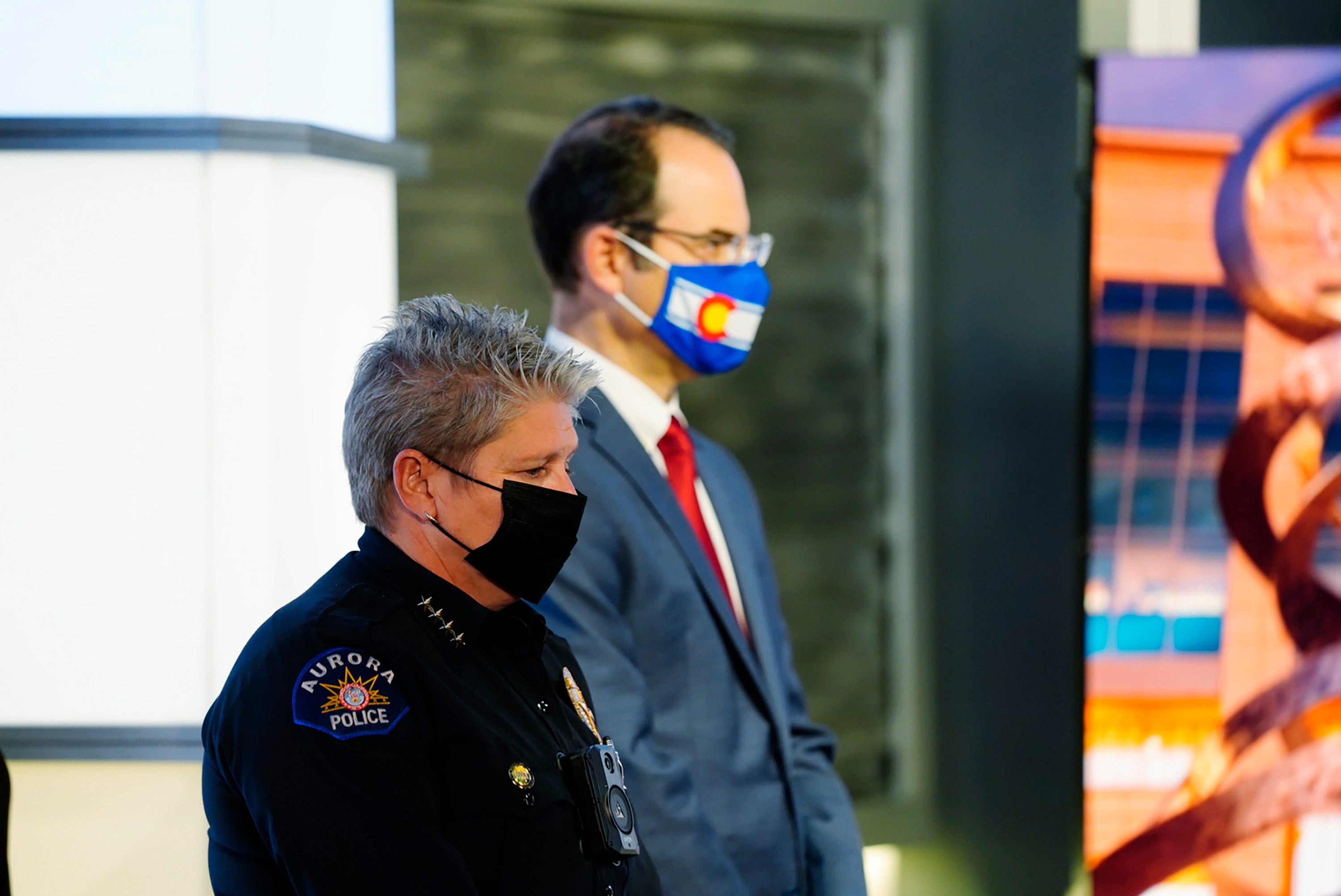Police reforms spurred by Elijah McClain's death advance
A suburban Denver police department whose officers were indicted in the death of Elijah McClain will revamp its use-of-force policies and launch new training programs in an effort to combat bias

A suburban Denver police department has agreed to reforms after the killing of Elijah McClain led to indictments against officers and a first-of-its-kind civil rights investigation that found a pattern of racially-biased policing and excessive force.
The plan, announced by Colorado Attorney General Phil Weiser and Aurora's city manager, police chief and fire chief, was reached in response to a civil rights investigation launched by Weiser amid outrage over the death of McClain, a Black man who was put into a chokehold by police and injected by paramedics with ketamine in 2019.
A key goal of the agreement is eliminating unnecessary use of force and increasing tracking and transparency about how officers engage with the community, Weiser said. It also aims to create a more diverse workforce in the police and fire departments.
Aurora city officials said they are on board with the plan, which also includes the city's fire department. It still hinges on city council approval.
“We are not going to shy away from reform,” Aurora Police Chief Vanessa Wilson said. "To the officers on the street, this consent decree is nothing to be afraid of.”
A monitor who will oversee if Aurora is following the plan and meeting milestones has yet to be hired. Paying for the monitor as part of the agreement, which will be in place for about five years, will cost as much as $250,000 a year, Aurora City Manager Jim Twombly said.
The civil rights investigation was the first of its kind done under a sweeping police reform bill passed by state lawmakers last year following the police killing of George Floyd in Minneapolis. It also found that the city's fire department had a pattern and practice of administering ketamine in violation of the law.
The fire department stopped using ketamine in September 2020 and has no plans to re-introduce it, Fire Chief Fernando Gray said.
The investigation found that Aurora police used force against people of color almost 2.5 times more than against whites based on their relative share of the population. According to the police department’s use-of-force reports, nearly half of the people officers used force against were Black even though Black people account for about 15% of the city’s population, Weiser's office said.
The city cooperated in the probe and in negotiating the agreement.
Wilson, who took over as chief after McClain’s death, said that the findings of the investigation were hurtful to many officers, most of whom are committed to fair policing.
“They want to police this community in a way that gives dignity and equality and inclusion to all,” Wilson said.
Police stopped McClain, a 23-year-old massage therapist, as he walked home from a store on Aug. 24, 2019, after a 911 caller reported a man wearing a ski mask and waving his hands who seemed “sketchy.”
Officers put McClain in a chokehold and pinned him down. Paramedics injected him with 500 milligrams of ketamine, an amount appropriate for someone 77 pounds (35 kilograms) heavier than McClain’s 143-pound (64-kilogram) frame, according to an indictment. He fell unconscious, was pronounced brain-dead at a hospital, and was taken off life support.
Weiser's office is prosecuting three officers and two paramedics on manslaughter, criminally negligent homicide and assault charges in McClain’s death. He convened a grand jury to decide whether to file criminal charges after being ordered to take another look at the case by Democratic Gov. Jared Polis amid last year’s protests over racial injustice. The local prosecutor decided against filing any charges in 2019, in part because an autopsy failed to determine what exactly caused McClain's death.
Lawyers for Elijah McClain's mother, Sheneen McClain, said in a statement that police in the city have been allowed to violate the rights of residents without accountability or consequences for too long but that she was hopeful that the agreement would bring badly needed reform.
“The lawlessness that infected this police department murdered Elijah,” they said.
Bookmark popover
Removed from bookmarks